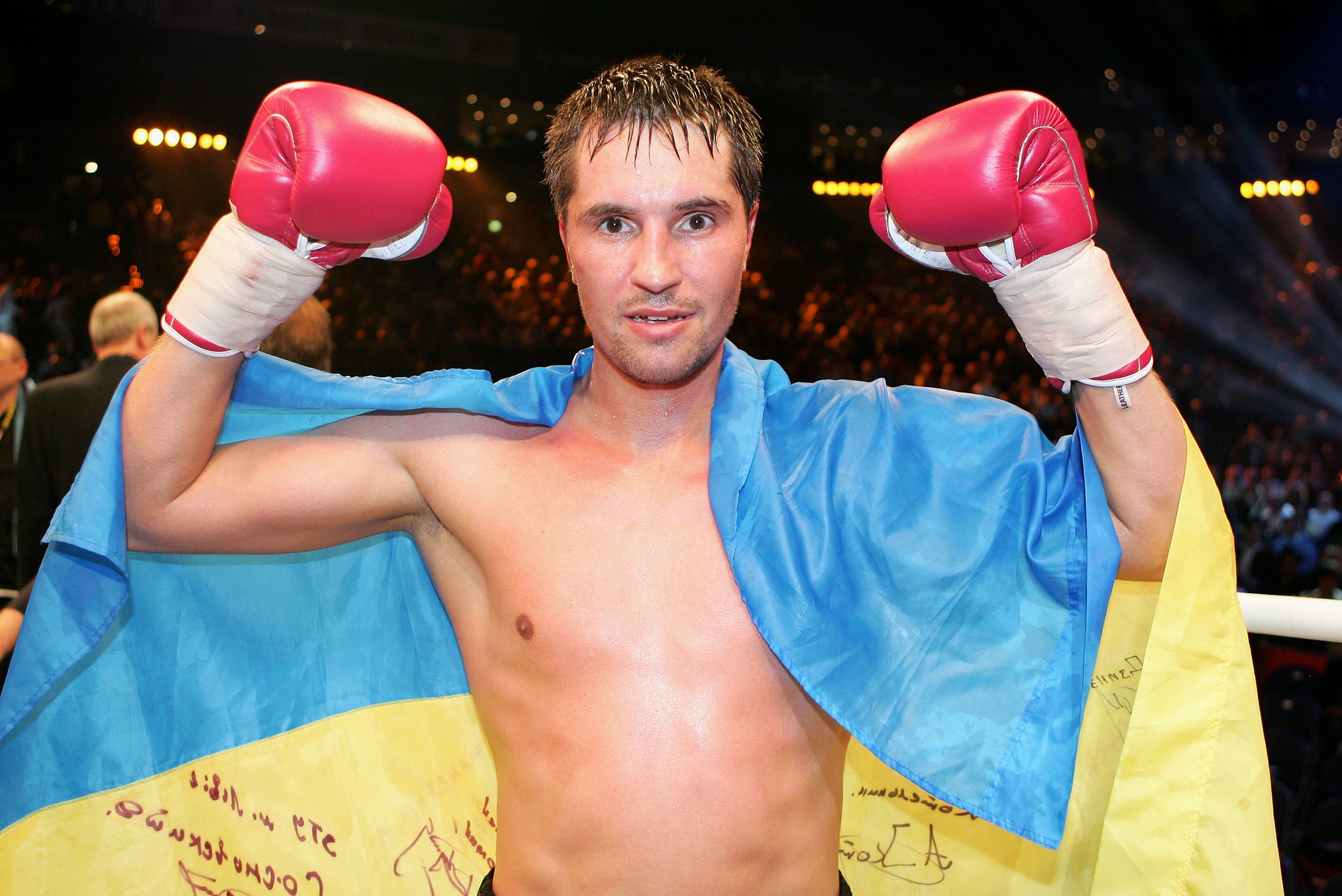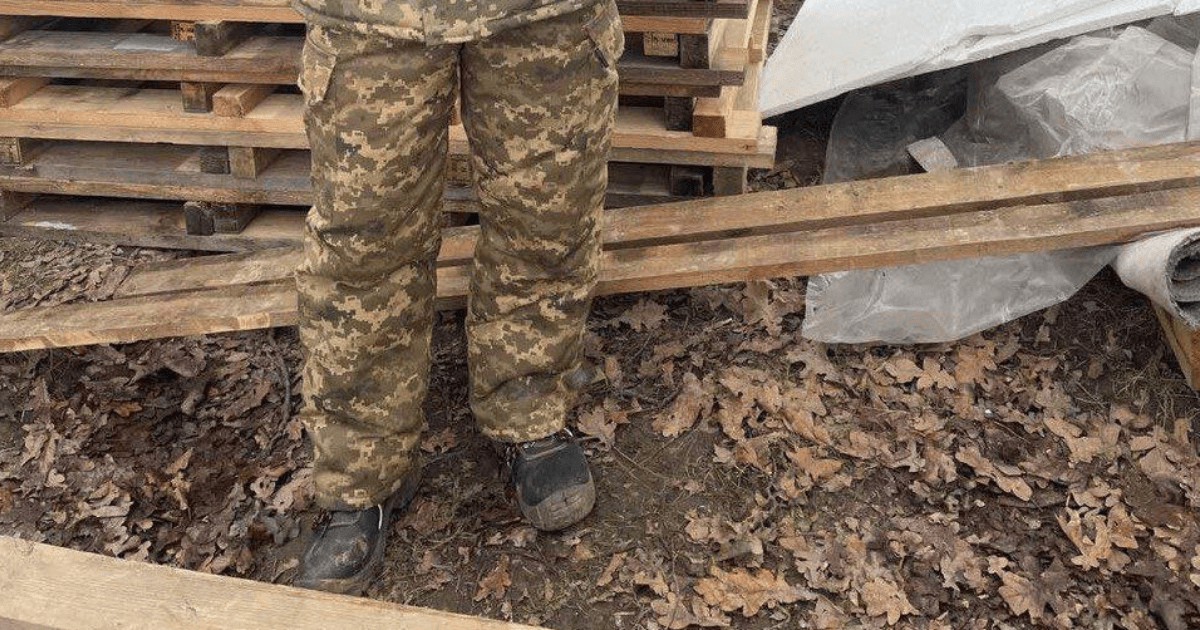Former Champ Turned War Fighter
Former world champion boxer Serhiy Dzinziruk, known as "The Razor," has traded his boxing gloves for a gun to join the fight against Putin's troops in Ukraine. Despite his impressive boxing career, Dzinziruk finds shooting Russians easier than facing opponents in the ring.
From Boxing Ring to Frontlines
After witnessing the horrors of war, Dzinziruk courageously joined Kyiv's Territorial Defence unit, where he serves as a commander and reserve officer. His daily routine involves combat training and defending his country against enemy forces.
Boxing Skills vs. Warfare
Despite being a technically perfect boxer, Dzinziruk admits that the threat of war is scarier than any championship fight he's been in. He finds the unpredictability of combat more nerve-wracking than the preparation and strategy involved in boxing matches.
Ukrainian Boxers Joining the Fight
Dzinziruk is not the only former boxing champ fighting in Ukraine. Fighters like Oleksandr Usyk and the Klitschko brothers have also enlisted in the war effort, showing their loyalty to their country and determination to defend it against Russian aggression.

From the Ring to the Front Line
These boxing legends have proven that their fighting spirit extends beyond the ring as they stand united on the frontlines of Ukraine, ready to defend their homeland and fight for freedom.
Frequently Asked Questions
What are the risks of professional boxing?
Professional boxing is a contact sport and as such, it carries risks. There are acute injuries, including cuts, bruises and broken bones. Also, there may be chronic conditions, like concussions syndromes or neurological disorders, that can develop from repeated impacts. Proper training, safety equipment, and adherence to boxing regulations help mitigate risks, but they can never be fully eliminated. Accepting and understanding these risks are essential to choosing to box professionally.
How do boxers manage weight and maintain their weight class?
Boxers manage their weight by adhering to strict diets and precise training regimens. They work with nutritionists on a diet plan designed to help them reach their weight target without sacrificing the nutrition and energy needed for training. It is important to maintain a regular exercise routine and check your weight regularly, especially as you approach a fight. Weight management, when done wrong, can lead health issues and poor performance.
What kind of diet would you recommend for a new boxer?
A boxer who is a novice should eat a healthy diet. This will help him recover from intense training and fuel his workouts. The general recommendation is to eat a combination of carbohydrates and proteins for energy. Lean protein helps repair and grow muscles, while healthy fats are good for your overall health. It is also important to consume vitamins and minerals as well. Consulting a sports dietician can help you create a tailored diet that fits your boxer’s goals and training routine.
What equipment is necessary for a new professional boxer?
If you are just starting out in professional boxing, essential equipment for beginners includes boxing gloves and hand wraps. Also, a mouthguard is necessary, as well as headgear, proper footwear, and a mouthguard. A heavy bag, speed bag, double-end bag, and other training aids are important for technical workouts. You should use durable, high-quality equipment to protect yourself from injury.
What should one look for when hiring a boxing or training coach?
When seeking a boxing coach or trainer, one should look for experience, a successful track record with other boxers, compatibility in coaching style, and a deep understanding of the sport’s technical and strategic aspects. A good trainer will emphasize safety, fitness, and personal development. To reach your boxing potential, you need a coach who is able to motivate and communicate well.
How important is mental strength in professional boxing?
Mental toughness, just like physical conditioning, is essential in professional fighting. The sport demands resilience, focus, the ability to handle pressure, and the psychological fortitude to overcome adversity. Mental preparation is a combination of stress management, visualization and a strong mentality to meet the challenges that are faced in the ring. Without mental toughness in the ring, boxers may not be able perform to their full potential.
How does a boxer progress from amateur level to professional level?
The transition from amateur boxing to professional requires a significant increase in training intensity and mental preparation. Amateur boxers must build a track record by participating in local and regional competitions. The key is to get a professional boxing certificate and work with managers and trainers that can guide you in your career and help secure professional bouts.
Statistics
- Cardiovascular fitness is critical, with a focus on high intensity interval training, comprising up to 40% of a boxer’s conditioning program.
- Approximately 80% of professional boxers start their career in the amateur ranks before transitioning to the professional level.
- The average age for boxers to turn professional is between 18 to 25 years, though many continue to compete well into their 30s and beyond.
- Less than 10% of professional boxers are undefeated throughout their career, highlighting the sport’s competitive nature.
- Reports suggest that successful professional boxers can earn upwards of 50 times more than the median purse for entry-level professionals per fight.
- An analysis of boxing injuries suggests that 90% involve the head, neck, and face, emphasizing the importance of protective gear.
- On average, a professional boxer spars between 100 to 200 rounds in preparation for a major fight.
External Links
ringtv.com
titleboxing.com
boxingnews24.com
proboxing-fans.com
sweetsciencefitness.com
wbcboxing.com
boxingforum24.com
How To
How to Learn and Analyze from Professional Boxers
Learning from professional boxers can significantly enhance your understanding of the sport. Analyze bouts to understand their tactics, techniques, and movements. Pay attention to how they control the pace, their defensive skills, and how they adapt to different opponents. Break down their combinations and footwork–seeing what works well and why. Be sure to observe their mental toughness and demeanor when under pressure. You can also read their interviews to learn more about their training methods and philosophies. This knowledge can be used in your own training.

